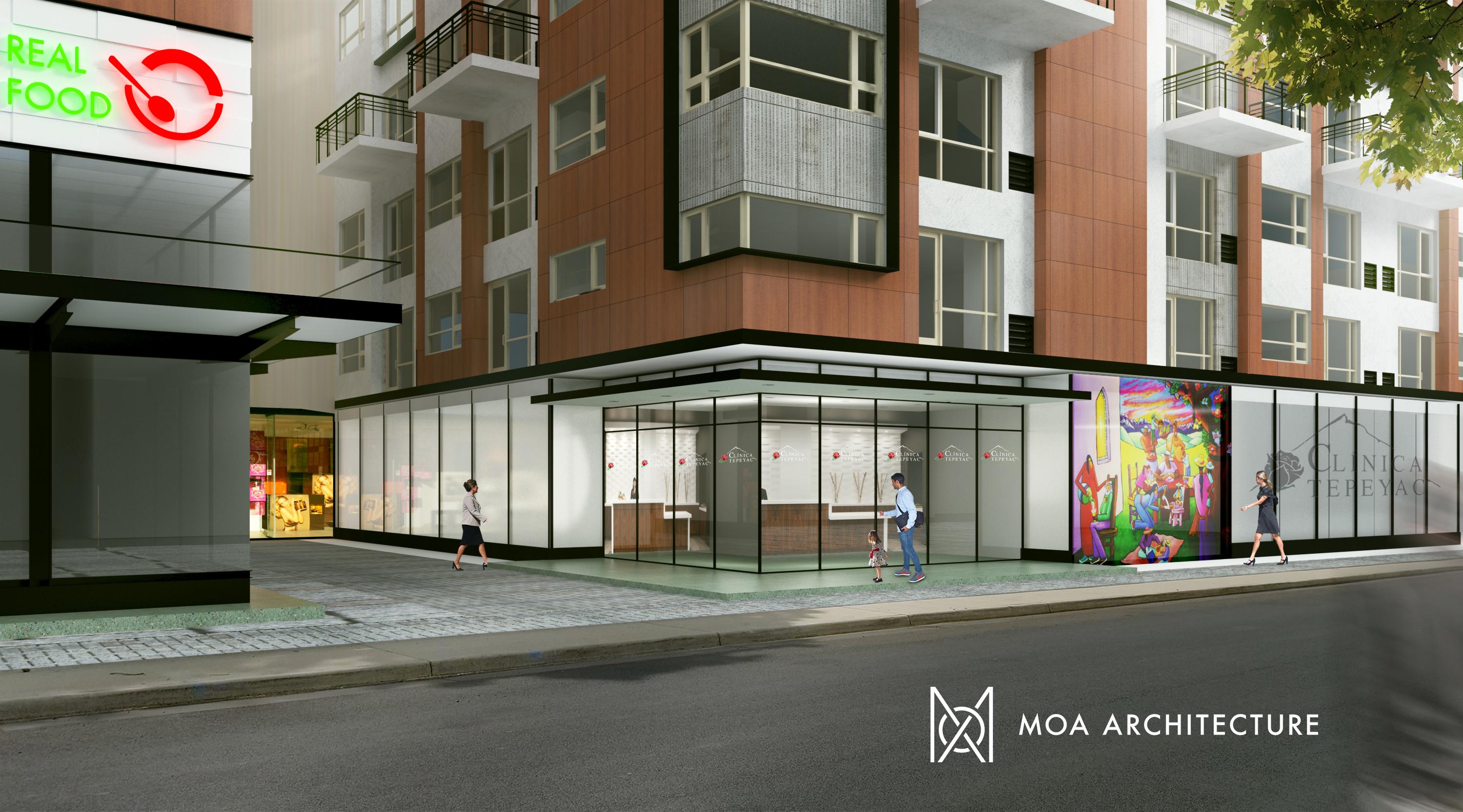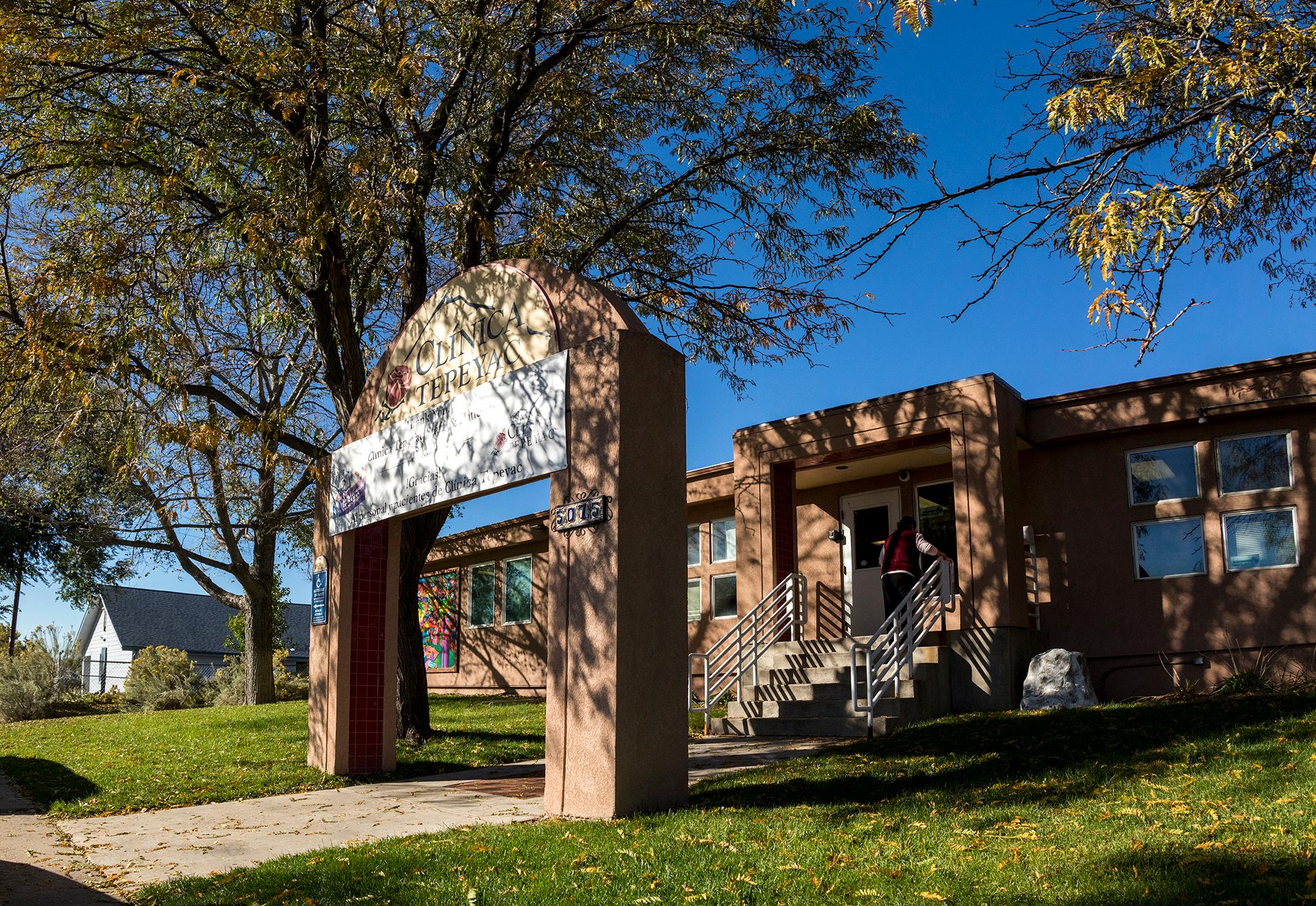Residents of the Globeville, Elyria and Swansea neighborhoods struggle to see their future through the dust of a major highway project and the disruption that has accompanied plans for the National Western’s transformation.
Jim Garcia, CEO and founder of Clinica Tepeyac, would like his neighbors to feel certain about at least one thing: that they can continue to count on his nonprofit community health center.
The clinic opened in 1995 with two exam rooms in a renovated house in Highland, a neighborhood where pot shops, trendy restaurants and modern architecture have pushed out longtime residents. Garcia's clinic, which later moved to a facility with 10 exam rooms at 5075 Lincoln St. in Globeville, has since the beginning focused on residents of largely Hispanic and low-income communities who might not otherwise have access to health care because of language, income and other barriers.
Now Garcia is planning a new clinic next door to RTD’s 48th and Brighton N Line station, where Tepeyac will anchor a $250 million development that includes affordable and market-rate multifamily housing and commercial and community space. Clinica will also continue operating in the Lincoln location.
"We are committed to serving the residents that currently use our services and we hope will stay in the neighborhood," Garcia told Denverite.
Garcia added that the clinic also serves many patients who travel far to get to a clinic that turns no one away because they can't pay. The new site's proximity to transit is a plus for that reason, he said. Over three-quarters of his patients live at or below the federal poverty line. Other partners in the project include the Colorado Health Foundation.

The Denver-based Urban Land Conservancy bought the six-acre site in 2015 for $5.5 million, in part with loans from Denver’s Office of Economic Development. ULC has stepped in before to ensure residents of affordable housing have access to transit and the amenities that pop up around hubs such as the Blake Street station on RTD's A line.
The real estate nonprofit also acquired the Holly Square site after arson related to gang activity destroyed a Park Hill shopping center. That site is now home to a Boys & Girls Club, a community center and a charter elementary school.
ULC helps bring together funders and visionaries to build projects aimed at benefiting communities. In addition, it makes land available on 99-year leases that are automatically renewed for another 99 years.
“You can’t do affordable development if we were to sell this land at market rate,” said Christi Smith, ULC’s vice president of strategy and communications.
Garcia said he had been looking for a site to expand his clinic before ULC put out a bid for partners to develop near 48th and Brighton. The cost of land "was a major concern" when he looked at buying a plot to build a new clinic or an existing structure to renovate
ULC’s long leases contrast with affordable housing built under a Denver law that keeps city-subsidized homes within reach of low-income families for 20 years, with options to renew.
"That's basically one generation," Smith said. "Us retaining ownership of land locks it (affordability) in for 198 years."
The Denver City Council is considering extending its 20-year clause to a minimum of 60 years (Denverite's David Sachs has the details out of Monday night's council meeting here.)
The ULC model may bring to mind another strategy in which the land under a group of homes is owned communally and never sold. The Colorado Community Land Trust, which has been organizing land trusts since 2002 when it started with affordable homes in Lowry, has been working with a neighborhood group known as the GES Affordable Housing Collaborative to create a land trust for Globeville, Elyria and Swansea.
The Colorado Community Land Trust is not affiliated with ULC. Last year funders announced they were launching Elevation Community Land Trust, which will operate independently after getting technical assistance from ULC.
“We’re just doing whatever we can to prevent displacement of individuals and families,” Smith said, adding that means not only ensuring people of all income levels in Denver have access to affordable housing, but to “the services that they look for and need.”
As the holder of the land lease, ULC can have a say in any new uses if its original collaborators sell the buildings on the plots. Health is among the uses ULC can protect in such an arrangement.
Health issues in Globeville are exacerbated by pollution spewed by cars speeding along Interstate 70. Environmental concerns in the historically industrial, commercial and residential neighborhood date to the 1880s, when it was a center of metal refining. Decades of contamination from factories led to Superfund designation in the 1990s.
Scores of businesses and residents in the area have been forced to move because of the renovation and widening of I-70. Displacement also has been spurred by plans for the expansion of the National Western Complex in Globeville from the site of an annual rodeo and stock show and occasional conventions into a showcase for agriculture and education expected to draw visitors year-round. The stress of watching neighbors disappear has health implications, as does worry over whether the National Western project will spur gentrification and more disruption.
Garcia envisions a new 26,000 square-foot clinic on the ground floor of the planned apartment complex. He would have more room for services like pediatric and behavioral healthcare it now provides in a 5,000-square foot facility, plus a pharmacy and expanded dental care. Tepeyac expects to grow from 4,500 patients a year to 11,000 once it moves into the new clinic at the end of 2020 or in early 2021.
John Reid, brought in to raise funds from donors to build the new clinic, said more than $1 million of an expected cost of $8 million to $10 million.
While it is not directly in his control, Garcia is pushing for a store in the complex that would give Globeville, Elyria and Swansea residents access to fresh, affordable food. Garcia has heard pleas for such a store often. Neighbors raised it Monday when he was walking near the clinic, he said.
"That's a really important piece in terms of services that we want to make available to the community," he said.
The developers say it is too early to pin down what amenities will be available in addition to the clinic. They pledge to keep listening to the community.













